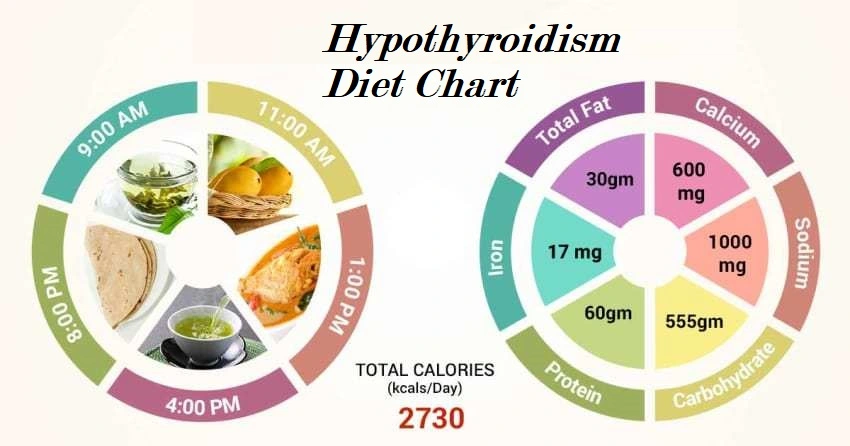
Ever wonder why someone have lots of sweet, desserts etc. and never gain weight? And why someone put on weight by nibbling on just one or two desserts or sweet a week? Its all due to Thyroid Hormone.
THYROID GLAND
Thyroid gland is situated in neck, it produces hormone that determines our metabolism, or basal metabolic rate. That’s the rate at which our body cells use oxygen and energy to do their works.
Too much production of Thyroid hormone means metabolism speeds up and too little means metabolism slows down. It is also responsible for how our body uses carbohydrates, proteins and fats that we derive from food.
There are two main disorders associated with thyroid are hypothyroid and hyperthyroid.
Hypothyroid: A drop of thyroid hormone can cause depression, malaise and forgetfulness.
Hyperthyroid: An increase in thyroid hormone can cause excitability, wide fluctuation in mood and crying spells for no reason.
Thyroid Test
- Basal body temperature test: Your body’s resting temperature is a convenient way to evaluate your metabolic status and assess how well your thyroid functions. It should be measured immediately after awakening, before any physical activity. If your temperature is below the norm, your thyroid hormones may be out of balance. A normal body temperature is between 36.5–37.5 °C (97.7–99.5 °F). We should keep a 5-day basal temperature to get a better result.
- Blood test: The TSH and T4 test are the two common thyroid function tests.
TSH: The high level of TSH indicates lower production of thyroid hormones, i.e. Hypothyroidism whereas low level of TSH in blood indicates excess production of thyroid hormones i.e. hyperthyroidism. Normal range of TSH is 0.4 to 4.0mU/l
T4: Free T4 is the thyroid hormone available to enter body cells, where it can be converted into T3, the active form of thyroid. Normal range of Free T4 is 9.0 to 25.0pmol/l

We can healthy living with thyroid by adopting a balanced thyroid diet and lifestyle management.
I am sharing a case study of my client.
Komal was struggling with her weight and fatigueless, depression, constipation, hair loss and muscle aches, symptoms of hypothyroid. Her thyroid was looked okay, except for a lower than normal T3,despite her thyroid medication.
After a careful dietary and lifestyle review, it was clear that Komal was eating a diet so low in carbohydrate, drinking a lot of tea and coffee and she had no strategies for handling stress.
A low carbohydrate or ketogenic diet that goes on for too long can lead to decrease free T3 levels. This is an evolutionary adaptation our body make when food in scarce. Our bodies start burning fats but also conserve energy by lowering free T3.
I advised her to add some healthy carbohydrates to each meal like oats, beans, legumes, berries etc. Actually, low carbohydrate and ketogenic diets are definitely helpful for some people in certain cases and for short periods of time, but the right carbohydrates are beneficial for most people. It is very difficult to stick to extreme diets of any kind, which is why we should focus on balance and finding the right ratio of carbohydrate, proteins and fat.
I also advised her to replace tea or coffee with green tea, infused water etc. and start meditation for 10 minutes a day and any type of workout, because when we do any type of workout, even walking, it increase feel good hormone in body and also increase metabolism.
She followed my all advises and started feeling a lot better and noticed her metabolism is increasing.
The following habits will help in healthy living with Thyroid:

- Enjoy each bite of food. Chew your food slowly and completely before swallowing. The more liquefied of food in mouth, the easier it is on digestive tract.
- Think positive thoughts and about how grateful you are to have food.
- Put a small portion on your plate. Eat three main meals with additional snacks.
- Don’t do anything when eating. Don’t read, work on computer, talk on phone, or watch TV.
- Increase your fiber intake. Add salads, flax seeds, chia seeds etc in your diet.
- Choose complex carbohydrate over simple carbohydrate. Complex carbs such as whole grains, oatmeal, quinoa, vegetables and fruits etc are high in fiber, which will fill you up longer.
- Eat healthy protein such as chicken, fish, egg, skimmed milk, curd, yogurt, beans, lentils, pulses, beans, nuts, seeds etc.
- Select healthy fat such as avocado, coconut oil, olive oil etc.
- Include super-foods such as almonds, Brazil nuts, basils, berries cinnamon, coconut, garlic, ginger, mushroom, oats, quinoa, rosemary, spinach, strawberries, sunflower seeds, flax seeds, chia seeds, walnuts, yogurt in diet.
- Do 30 minutes walking or yoga or workouts any one which you enjoy to do for 2 to 5 days a week. Make sure you are having fun when you workout, as that will increase your chances of sticking with it.
- Do meditation or go for short walk or call someone who makes you laugh to manage stress.
- Get up and go to bed at the same time every day, do meditation or listen to music, keep away your gadgets for getting a good night sleep.
So, let’s start following a good diet plan and healthy lifestyle with dietitian expert Meenakshi Anupam
